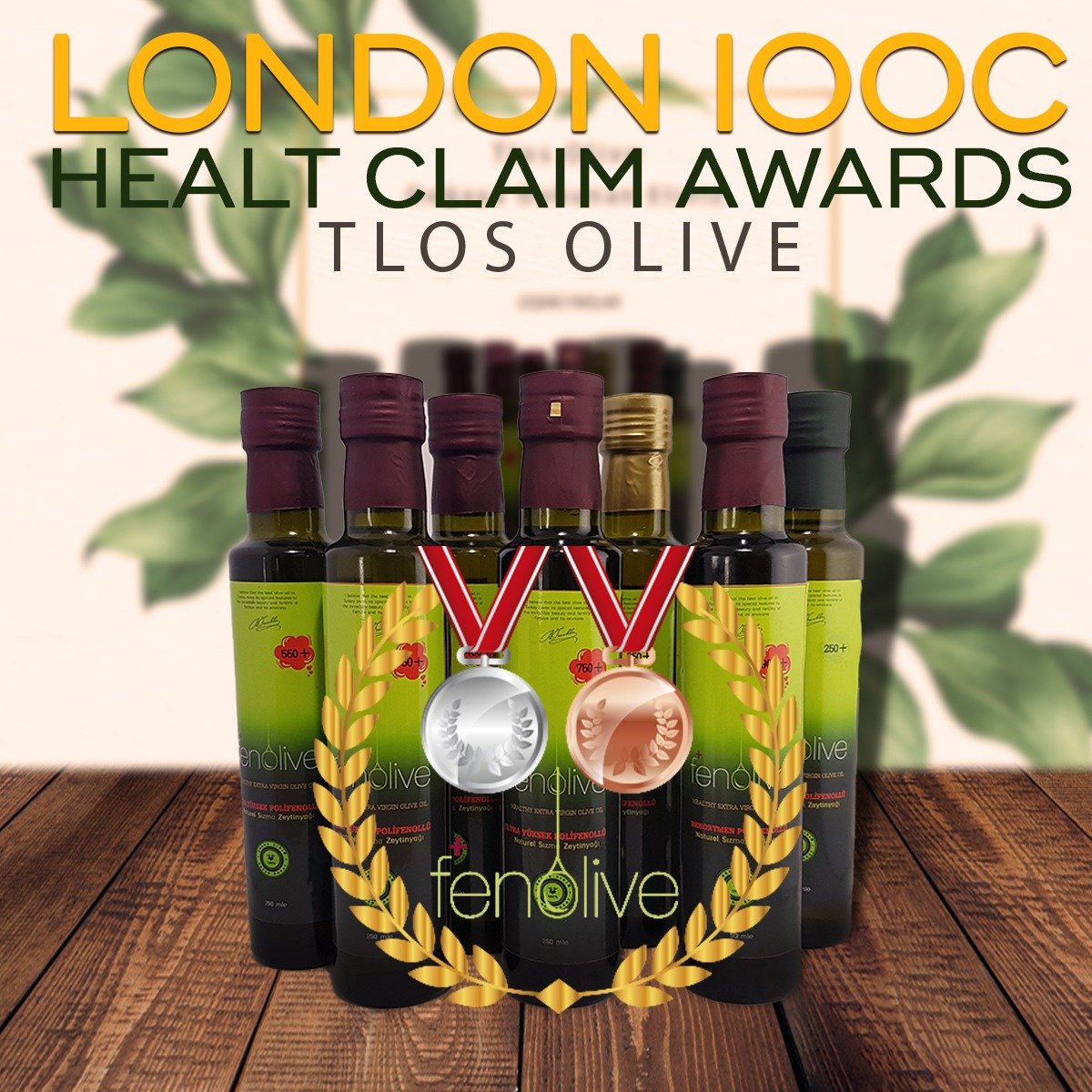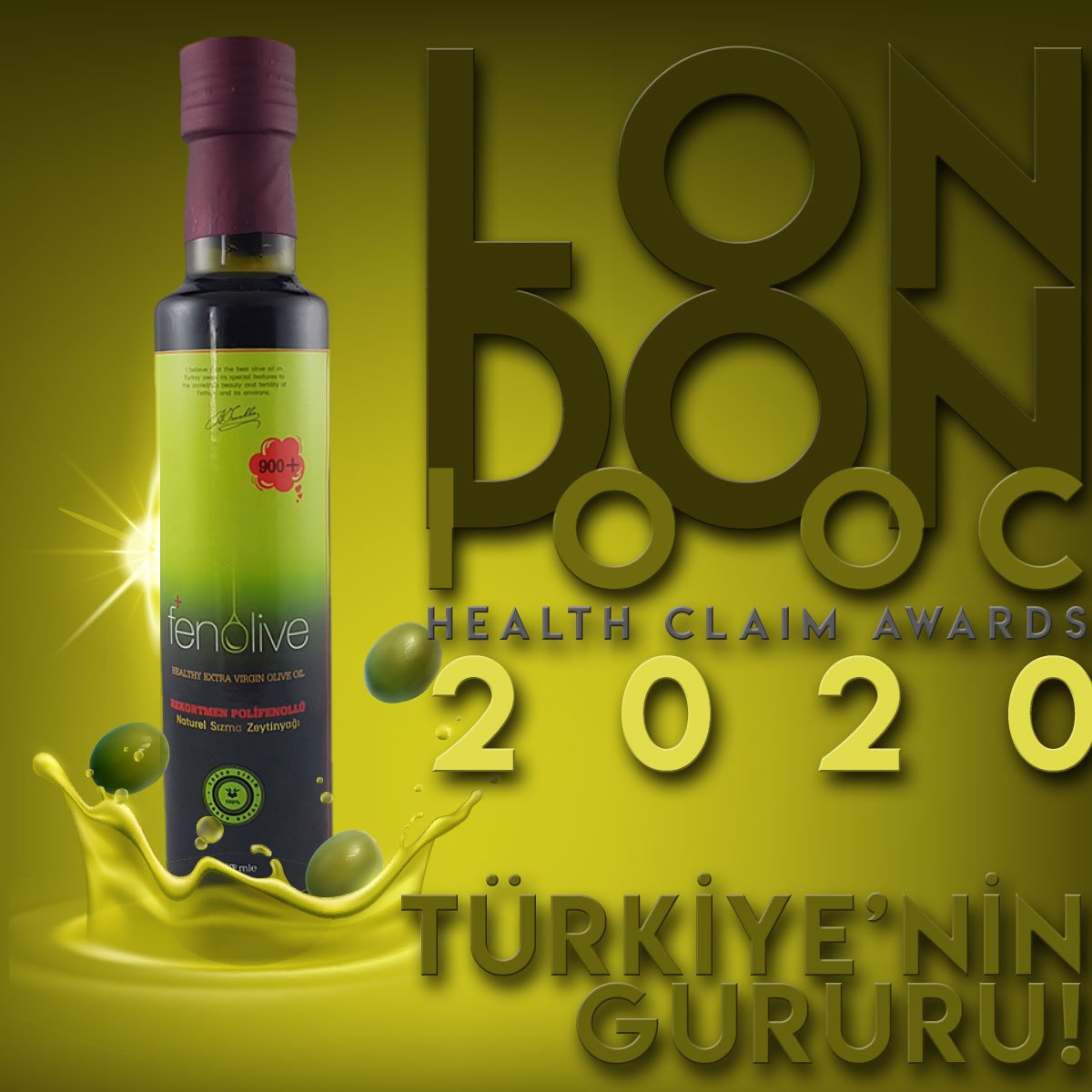Stomach protector

The benefits of drinking a spoonful of high-polyphenol olive oil in the morning on an empty stomach do not end with explaining.
EFFECTS ON THE STOMACH AND DIGITAL SYSTEM (*)
The tolerance of the stomach to various fatty foods varies from person to person. But in general, a high-fat meal gives a feeling of heaviness. When the food is greasy, the stomach empties later than usual. However, 10 g (1 tablespoon) of olive oil , whether raw or preheated, does not change the emptying time of the stomach. Since it is best tolerated by the stomach, in other words, it is the easiest fat to digest , it also facilitates the body's intake of vitamins and minerals.
Studies have shown that olive oil has a protective effect on the inner lining of the stomach . This creates an important advantage in preventing ulcer development. Protects the mucosa; It prevents digestive and absorption system disorders and intestinal diseases . When consumed hot and cold, it adjusts stomach acidity and is protective against gastritis and ulcer .
Olive oil is also protective against stomach ulcers and cancer . Polyphenols found in olive oil , which is the main source of the Mediterranean diet, can prevent infection caused by Helicobacter Pylori (H.Pilori) . This bacterium, which can live in the acidic environment of the stomach, is known to cause peptic ulcer and gastritis . A group of researchers from the Spanish Grasa Institute, Valme Hospital, reported that under simulated in vitro conditions, extra virgin olive oil rich in polyphenols had antibacterial activity against 8 strains of H.Pilori , which is known to be resistant to antibiotics . Concepcion Romero, editor in the "Journal of Agricultural and Food Chemistry" : "Looking at these results, natural extra virgin It is clear that olive oil can be a chemoprotective (cancer-fighting) agent against peptic ulcer and gastric cancer.
A recent study investigated the potential anti-H.Pylori role of olive oil polyphenols in vitro. The beneficial phenolic compounds found in extra virgin olive oil with polyphenols can remain in the acidic environment of the stomach for hours. In fact, research results under simulated conditions showed that half of the polyphenols found in olive oil can diffuse into the water phase of gastric juice, and these phenols show the highest anti-H.Pylori activity . "The results showed that the secoiridoid aglycons compounds were not broken down in the acidic environment of gastric juice. These compounds are potent anti-H.Pilori compounds of olive oil," said Romero.
Crespi pointed out that olive oil inhibited Shay's experimental ulcer in mice. On the other hand, Taits, while treating 102 patients with ulcers , found that replacing animal fats with olive oil resulted in a reduction in lesions in 33% of cases and ulcer scarring (a process of repairing tissue loss) in 55%, accompanied by an improvement in excess acid secretion and antral hypermotility. found to accompany him.
Ancel Keys investigated the reason why cardiovascular diseases are so rare in Mediterranean countries. He found that the closure rate of ulcer wounds was 55% in these patients who used only natural extra virgin olive oil in all meals .
In the morning on an empty stomach, to facilitate digestion , to strengthen the stomach against heartburn and gas problems , loss of appetite a tablespoon drink extra virgin olive oil .
STOMACH PROTECTIVE MEDICATIONS YOU TAKE WITHOUT THINKING MAY HAVE DAMAGES (**)
Are there risks to using stomach acid reducing medication for a long time? Are the claims that these drugs cause cancer true? Do the claims that they increase the risk of osteoporosis reflect the truth? If you are one of those who believe that stomach protectors that are used for a long time without consulting a doctor, thinking that they are harmless, are innocent, you are badly mistaken. Recent scientific studies draw attention to the fact that not everyone can use these drugs and their side effects
Gastric acid-reducing drugs (Proton pump inhibitors - PPI), which are popularly called "stomach protectors", are widely used in the treatment of stomach acid-related diseases. These drugs block the proton pump structure in the stomach wall, thereby reducing gastric acid secretion and therefore stomach acidity for a long time. According to the news of Ceyda Erenoğlu from Habertürk, approximately 64 million gastric protective drugs are prescribed annually in Turkey, which means that approximately 180 thousand boxes of PPIs are prescribed per day.
THERE ARE A LOT OF QUESTION MARKS
Assoc. Dr. Alpaslan Tanoğlu says that there are serious question marks in the minds of both patients and physicians regarding the short and long-term benefits and harms of these drugs, which are widely prescribed today. Tanoglu; "This issue was discussed in detail in international scientific platforms and discussed in detail at national gastroenterology congresses last year. Our physicians are in agreement that these drugs are overused," he says.
WHICH HEALTH PROBLEMS ARE USED IN THE EXISTENCE?
So, in which health problems are these drugs used? Gastroesophageal reflux' or commonly known as 'reflux' and esophageal (esophageal) inflammations associated with this ailment come first. This drug group is also frequently used in the treatment of H.Pilori bacteria, which can cause gastric inflammation/irritation or ulcers, which is observed at a rate of 70-80% in our country, although it varies regionally. The treatment of stomach and duodenal ulcers due to both drugs and other reasons, and stomach bleeding due to ulcers and gastritis may require the use of these drugs for treatment purposes under the supervision of a physician and at a certain time interval.
WHAT DOES UNCONTROLLED AND LONG-TERM USE MEAN?
Depending on the disease and the clinical condition of the patient, the use of these drugs in time periods that are not long can sometimes be life-saving and can significantly improve the quality of life. Assoc. Dr. Alpaslan Tanoğlu states that what is meant by long-term use is the use of these drugs for months and mostly years. However, in some rare cases (such as the necessity of using aspirin derivatives and other blood thinners called anticoagulants in patients with a history of bleeding, and the necessity to prevent the development of stress ulcers in patients hospitalized in the intensive care unit), physicians are advised to protect the patient from undesirable problems and the bad consequences of other drugs and diseases such as bleeding. It may need to be used for a long time under control and supervision. Noting that these drugs generally have a good safety profile, Assoc. Tanoglu; "In short-term use, side effects that do not affect the quality of life are at the rate of 1-3 percent, and the rate of discontinuation of the drug due to side effects is 1-2 percent. The most common side effects are headache, abdominal pain, diarrhea, nausea and skin rash. In the case of long-term, unconscious and uncontrolled use, various scientific articles have shown that these drugs are low in magnesium in the blood, vitamin B12 deficiency, diarrhea due to Clostridium difficile, lung infection, chronic kidney damage, dementia in advanced ages, anemia due to iron deficiency, heart attack, osteoporosis. and it has even been suggested that it may cause an increase in the risk of tumors in the gastrointestinal tract, which we call the gastrointestinal tract.
DO THESE DRUGS HAVE A RISK OF CANCER?
"The most important question that comes to mind in those who use these drugs is whether their use will cause cancer. Theoretically, although these drugs have a risk of increasing tumor development in the gastrointestinal tract, called the gastrointestinal tract, in the articles published in the most prestigious international gastroenterology journals in 2017 and 2018, this risk is increased. It has been reported that there is low level of scientific evidence about the disease, in other words, there is no clear data that it increases the risk of tumor. In line with scientific articles, the following conclusions can be drawn: When gastric protective drugs are used in appropriate cases, the benefits are greater than their harm. Under the supervision of a physician, careful, conscious and customized PPI is used. The risk of encountering undesirable events is very low.”
If you want more academic studies, "National Center for Biotechnology Information" or "Journal of Agricultural an Food Chemisty" (you can find links to both under the "Olive Oil Miracle" heading on our page). Contents in English. Unfortunately, there is very little research in Turkish.
So What Makes Olive Oil So Beneficial?
PHENOLIC COMPONENTS
In recent years, many studies have been conducted on the effects of dietary components on health. Especially, studies on fats have gained importance when health problems such as increasing obesity are taken into account. Unfortunately, the increase in interest in oils does not mean that accurate information on this subject reaches consumers. The heart-friendly emphasis in margarine advertisements is a good example of this. In general, unsaturated fats are considered healthier than saturated fats. However, it is a known fact that the health effects of all unsaturated fats are not the same. Especially during the refining of unsaturated oils, there is a loss of components such as oil-specific phenolic components, which are small in quantity but whose effect may be significant. Since olive oil is a fruit juice obtained only by physical processes, it differs from other vegetable oils with this feature.
Olive oil is the main source of fat in the eating habit, which is called the Mediterranean diet in the world and has become very popular in recent years. Recent studies suggest that components in olive oil have far more positive effects than previously reported.
Phenolic compounds are components that improve both the positive health effects and flavor profile of olive oil. Although consumers see free acidity as the most important quality criterion in olive oil, the most important feature that distinguishes extra virgin olive oil from other oils is the minor components that make up approximately 2 percent of the oil. Among the minor components, phenolic components (polyphenols) constitute an important part. Another misconception that consumers have is that the bitterness and burning of olive oil are perceived as a negative feature. Burning and bitterness are positive properties for olive oil and are indicators of excess phenolic components. These compounds, which are very important in olive oil, are affected by various conditions. It is necessary to take precautions to ensure the protection of these special and important compounds, to be produced with the right processes, and to store the olive oil in good conditions, starting from the cultivation stage of the olive.
Polyphenols occur naturally in plants. Unlike vitamins and minerals, they are not essential nutrients, but they contribute to many mechanisms with their beneficial effects on the body. Fruits and vegetables are sources of polyphenols. Other sources include nuts and seeds, cocoa products (eg dark chocolate), whole grain products, tea and coffee, and red wine. Polyphenols are known for their antioxidant properties.
There is evidence that polyphenols inhibit cancer formation and tumor growth. Polyphenols can interfere with reactive elements and cancerous and mutated cells, activate the main proteins that control cell proliferation, and prevent the emergence of certain cancer-related genes. It is now possible to reach many articles published by important institutions on these subjects on the internet.
Our body cannot benefit from all the polyphenols in every fruit and vegetable. For example, although there is 5000 mg/kg of polyphenol in apples, it can only take 0.2% of it. However, it can absorb 90% of the polyphenol olive oil drunk on an empty stomach, and can absorb 45-55% of the beneficial compounds in it. In simple terms, 10 soldiers can be sent to the body, as in the apple example, while 450 soldiers can be sent with 900+ polyphenol olive oil.
If you want more information about the phenolic compounds in olive oil, you can refer to our article in Bilge Tree Magazine published in March 2019 ( https://www.tlosolive.com/blog/icerik/polifenol-nedir-bilge-agac-dergisi-ferhan-tolga-ozen ).
FENOLIVE
Not every olive oil has enough phenolic compounds. In fact, each olive variety has different amounts of phenolic compounds. In order to obtain an oil rich in polyphenols, the right olive varieties and olive trees in the right region should be selected. The fruit of any tree with hail hit or fly wound should not be used. Olives must be carefully picked from the tree. Picking it up with a pole and dropping it to the ground initiates oxidation in olives. The phenolic compounds in it begin to disappear. In Fenolive series products, we collect all the product one by one by hand. As the olive waits, oxidation continues. At Fenolive, we squeeze the product we carry in the crates within 4 hours. Phenolic compounds in olive oil do not like heat and contact with air at all. They are lost in the heat, fly away in contact with air. Therefore, the squeezing should definitely be below 27 degrees, that is, it should be cold pressed. Although the name of the stone mills sounds good, they get lost there too, as the air contact is high. After tightening, the oil should be well protected. We use special tanks produced for this purpose, the mouth of which is called Italian lid, made of steel approved by the Ministry of Health. As the oil in the tank empties, we press nitrogen gas to prevent air contact.
In summary, our sole purpose in Fenolive series products is to capture very beneficial compounds for health, transfer them to oil at the highest level and protect them. While we produce 1 kg of oil from 3.5-4 kg of olives when producing normal hot pressed oil, in Fenolive, in early harvest, when we obtain 1 liter of oil from 50 kg of olives. In flat land, we are happy when a worker collects 100-120 kg in mixed harvesting, while 20 kg in Fenolive per day.
Fenolive series products are in the category of "Healthy Natural Extra Virgin Olive Oil" in accordance with the European Union Health Declaration. They are grouped according to the amount of polyphenol they contain. 350+ means that there are 350 or more mg/kg of phenolic compounds in them as of the date of production. These measurements witness samples are determined and made on a tank basis in laboratories approved by the internationally recognized IOOC (International Olive Oil Council), and the measurement report is sent to you with the product.
There may be differences between the reports of products with polyphenols in the market in terms of measurement methods/reporting methods. If the same product is reported using a different method, it is possible to publish a report with a much higher figure. But we are one of the internationally recognized methods developed by the IOC, Doc. We report in tyrosol according to No. 29. You can find the details of the subject in our " Polyphenol Measurement Reports and Differences in the Market " blog.


In the Health Claims category...
We are also very happy that we have contributed to show the whole world the level of quality olive oil production in our country. WE ARE PROUD...
Our excitement is even greater with our new product, 1050+ this year... The biggest proof that we do our job with love... The biggest proof that we are trying to surpass ourselves... It is proof that we don't say anymore what polyphenol comes out of a garden, and we work hard to find polyphenol. ..
What is polyphenol? What benefits does it have? You can find answers to many of your questions such as " The Miracle of Olive Oil " in our blog.
SUMMARY, NOT EVERY OLIVE OIL...
To reach our natural products that can help protect your health:
https://www.tlosolive.com/kategori/yuksek-polifenollu-zeytinyaglarimiz
To reach comments about the products:
https://www.tlosolive.com/blog/icerik/comments
For your health, for your health...
TLOS OLIVE FAMILY
www.tlosolive.com/page/about us
www.facebook.com/tlosolive.com
www.instagram.com/tlosolive.com
